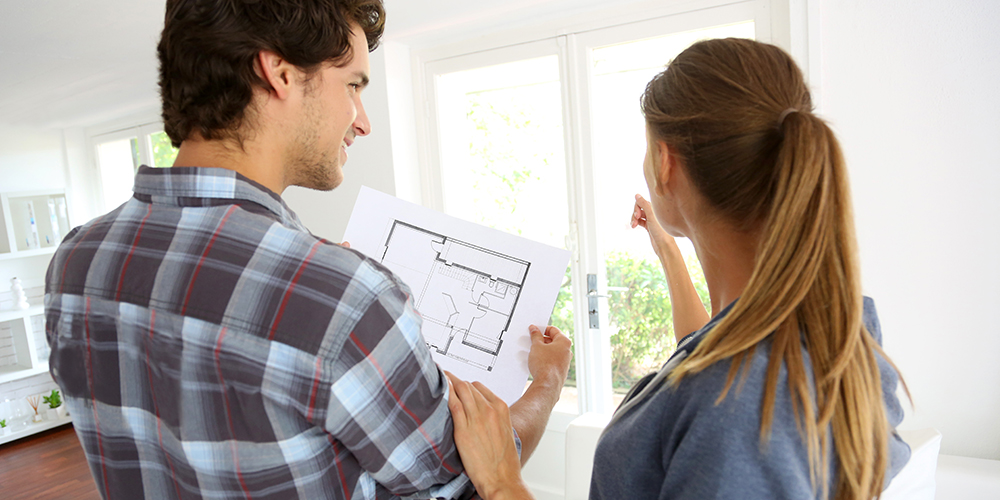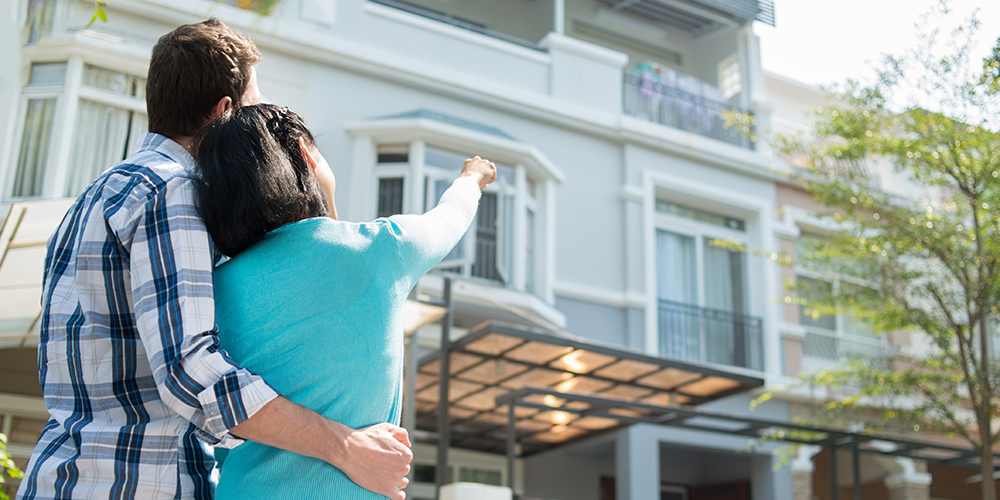Lock Blog
A resource for consumers, locksmiths, and security professionals
A resource for consumers, locksmiths, and security professionals

Over the past few years, we have all been privy to the astounding rise of in popularity of Do-It-Yourself (DIY) techniques across many different mediums and platforms. The principles of DIY lie within an individual’s independence from trusted professionals. DIY works with the basic idea of having people do things for themselves so that they are not obliged to call a professional every instance something, somewhere, goes wrong. This revolutionary idea (because apparently, people don’t do things for themselves anymore) has pervaded many industries and continues to disrupt many business models. It irrevocably does away with the middleman and puts the product right in front of the customer. From there it is up to the customer to complete the required labor.
The ever increasing popularity of DIY is best witnessed within the home sector. Many homeowners are opting to upgrade aspects of their home themselves, so they do not have to worry about the additional costs that come with hiring a professional. From paint jobs, to garage door upgrades, to adding decks and porches, homeowners are flexing their new found creativity and making the most out of it.
However, the advent of DIY techniques has raised several questions, from both DIY practitioners and professionals from varying fields. Is it really more cost effective to handle projects, that professionals have been trained to do, by yourself? Not every security upgrade is effective, so how do you know what to do? Questions have also been raised about the safety issues that are somewhat rampant and synonymous with DIY undertakings. There is a reason why professionals exist, right? They have been trained to properly assess situations and deliver the best and safest solutions, but what if doing it yourself poses no risk at all and is, in fact, the cheapest route to go?
So when it comes to home security, the question remains, to DIY or not to DIY? Well, we are here to help you find out. I believe it is a decision that only a homeowner can make, but one that they should make once they have seen all the cards on the table and know just what they are going in for.

Even before you can decide what improvements you want to make to your home, you should be able to tell which upgrades it needs. The first step in upgrading the security of your home is to take a tour of your property and see what is lacking. Take inventory of what you might need to get fixed or upgraded. Here are some important things you need to pay close attention to with regards your home’s exterior, garage and separate additions, and the interior.
While you are on this maintenance tour of your home, make sure to be on the lookout for any additions that will come in handy later on. This could be in the form of additional exterior lighting (motion sensors always come in handy) or basic additions that will make your door more secure. One thing to be mindful of is the fact that security alarm systems are not meant to be the sole guards of your property. They can at times be the first line of defense, but it is important that everything else in your house is primed to help withstand burglary and theft.
Once you have ascertained what needs to be upgraded, and seen which areas you need to pay attention to, then it is time to move on to the next step. This next step involves finding out which upgrades will work best for your home. Since you have already identified what needs to be upgraded you have to find the right fit for the job. This could be done by either you or a professional, but regardless of who is getting the job done, make sure that you are adding installations that keep your home adequately secured instead of adding more weaknesses.
This could be handled with the addition of more lights to the exterior or interior, as well as reinforcing the locks of doors (adding a deadbolt or customizing the locking mechanism itself). Whatever the case may be, ensure that you are making the appropriate improvements.

“To be or not to be? That is the question,” Hamlet, anyone? There is an undeniable pride and joy people get every day when they look at something they made or built, and that feeling is further compounded when they see that someone else is also benefiting from the fruits of their labor. Being of usefulness to someone imbues us with feelings of belonging and accomplishment that are rivaled by little else.
However, is experiencing a pleasant feeling reason enough to undertake such an important project yourself? Maybe. Maybe not. When it comes to home security, the end goal should not be the personal satisfaction you feel when looking at your work. It should be that feeling of safety that you and your family are constantly shrouded by.
When it comes to do-it-yourself home security improvements, there are many things that you can do that are extremely cost effective, and will most likely not pose any harm to you or your family in the process. Do keep in mind that there are some DIY solutions that are extremely hard to do, and some that do run into certain safety risks, so make sure you know the level of your handyman capabilities.
In upgrading your personal security the DIY way, you are able to personally oversee everything that is going on. You can work within your own budget and time schedules. It also gives you the unique opportunity to learn more about your home and the processes that go into making it more secure. There is the added bonus of the cost effectiveness of carrying out your own improvements, although this depends on the scale of the project. The reason why it is generally cheaper is because there is no added service cost, and you only need to pay for the materials and invest your time into completing the project at hand.
One of the biggest hurdles of completing a DIY project is the amount of time that goes into said project. Homeowners need to learn everything they can about it and make sure that they are carrying out the tasks to the best of their abilities. It does make them passable experts by the time they are done because they have invested so much time in learning every nook and cranny of their homes, and found out how to best install the needed security additions.
The implementation of a DIY security project also negates the issue of inviting strangers into your home. Many homeowners are wary of letting people they don’t know into their homes, and they have every right to be. It makes it an, even more, muddled issue when you are letting someone you don’t know (no matter how reputable the company they work for) come into your home and assess and upgrade your home security. This situation gives an outsider a knowledge of your home and it’s security system, something that homeowners would prefer to be kept at a minimum. In the event that homeowners carry out their upgrades themselves, they are the only ones privy to the upgrades they included and thus keeping the probability of someone bypassing them rather low.
Not every homeowner protects their home with the addition of a security system. For some, it is more cost effective to handle this in unconventional ways. This can be done by upgrading bits and pieces of what is already in place to ensure that the home is secure all around. It will help to reinforce windows and doors (both traditional and sliding glass doors), to upgrade the locking mechanisms on the doors to make them more pick resistant and bump resistant. There are several other methods that can be employed to trick or deter burglars, thus upgrading your security. For instance:

A good comparison or debate is never any fun if one side has an overwhelming advantage over the other. At that point, it’s no longer a debate but a beat down in the form of a lecture that no one really wants to hear, apart from the winning side. Today, however, we avoided that awkward situation because the opposing side to DIY came prepared.
Many professionals are divided over the continuous expansion of DIY practices into various industries. Some security companies have diversified their product lines to include plug and play do-it-yourself security systems, which make it easy for homeowners to buy and set up themselves. Most of these come without contracts and additional prices, so you can imagine how excited homeowners were about that. On the other side of the spectrum, security professionals are trying to make homeowners aware of the dangers that can arise from undertaking your own home security improvements.
The reason why professionals are called professionals is because they have experience at what they do, as well as a wealth of knowledge to draw upon in case something doesn’t go according to plan. One of the main dangers of bypassing the expertise of home security professionals is that most homeowners do not have the experience or foresight into the activities and burglars like these guys do. For professionals, the installation of security protocol is far more than just stringing up some wires and pressing a few buttons. It’s also about knowing how burglars think and what they hope to achieve. This helps them pick the best location to position the sensors and components of your alarm system. They are also more aware of the intricacies of many of the systems and know how to place each of the components strategically so that they work to their maximum potential.
Many of these professionals fear that homeowners may be putting their safety and that of their families at risk with due to the increase in demand for DIY systems. There is also the concern that arises from the solo mission that DIY becomes. Many of the traditional alarm systems that have been in place over the past few years come with the bonus of an extra eye. Security companies enter contracts with homeowners that allows them to be able to monitor their property 24/7, in the case of anything suspicious that may be going on.
These are known as monitored security systems. This gives homeowners the added benefit of having someone else be able to notify the police in case something is going wrong and they cannot do so themselves, or if they are not home at all. With DIY systems, the weight of that burden is left entirely on the homeowner’s shoulders, and this reduces the chances of the police being notified in a situation where the homeowner has very few options.
The maintenance of the security system also becomes the sole responsibility of the homeowner and this eventually presents many challenges. Most providers of traditional security systems, include maintenance checks and upgrades in their packages. It is part of their job to occasionally inspect the alarm equipment and upgrade it as necessary. While they do this, they also lend a helping hand in assessing your home’s security once again and suggest any necessary upgrades.
For homeowners that opt to go the DIY route, all the maintenance, and necessary upgrades will have to be performed in-house. Most people will think this is not a big deal, however, it isn’t until it’s too late that you begin to realize that your home security system may need upgrades. Unless you happen to run regular safety drills in your home, you won’t have any true way of testing the effectiveness of your security system until it is far too late and the burglars are already in your home or out of it with half of your stuff.
When it comes to security upgrades that do not involve the addition of a security alarm, homeowners still need to be vigilant and wary about when, and how, they decide to handle upgrades. These upgrades could either be done in-house or outsourced to trusted professionals. Some upgrades can be undertaken by homeowners without any serious risk to their safety. The only thing that they are putting at risk is the use of their time. However, in some instances, it is best to call for a professional to prevent any accidents from happening.
The necessity for a professional could arise when the scale of the project is much bigger or when they just have better insight into it. For instance, if you are changing the material of a door (or replacing your locks) and need to take the entire door off its hinges, or maybe you are installing a new garage door opener/upgrading its security. Due to the fact that a door like that has so much pressure resting on its springs, it is an accident waiting to happen if not handled properly. There are many other situations like this that could arise, and this is why professionals feel they need to play a role in the installation and upgrading of home security.

There are obviously pros and cons spread across both sides of the argument. However, the commonality between these two parties is that they each want to make sure the home is kept as safe as it can be. For homeowners, the lucrative idea of not being overcharged for something that they can try and do themselves, is what is alluring to them. On the other hand, security professionals fear that this is a gateway to greater danger. From my perspective, I can sympathize with both of the affected parties, and I feel like the line in the sand needs to be drawn at the point where cost effectiveness is borderline dangerous to the homeowner. There is also the question of whether or not the experience a homeowner possesses is sufficient for the job they want to undertake. It comes down to homeowners being completely honest with themselves and knowing when not to compromise safety for cost effectiveness and the pride that comes with saying “I did this myself”.
This is not to say that some projects cannot be done without a professional present, but individuals need to be cognisant of when the scale of a project crosses the threshold of DIY into the realm of “go hire a professional”. Let us know what you think! Do you think DIY projects will gradually push professionals out of their businesses, or will there always be the safety risk that prompts the need for a certified professional to maintain your security?
Category: How To's, Residential, Safety & Security